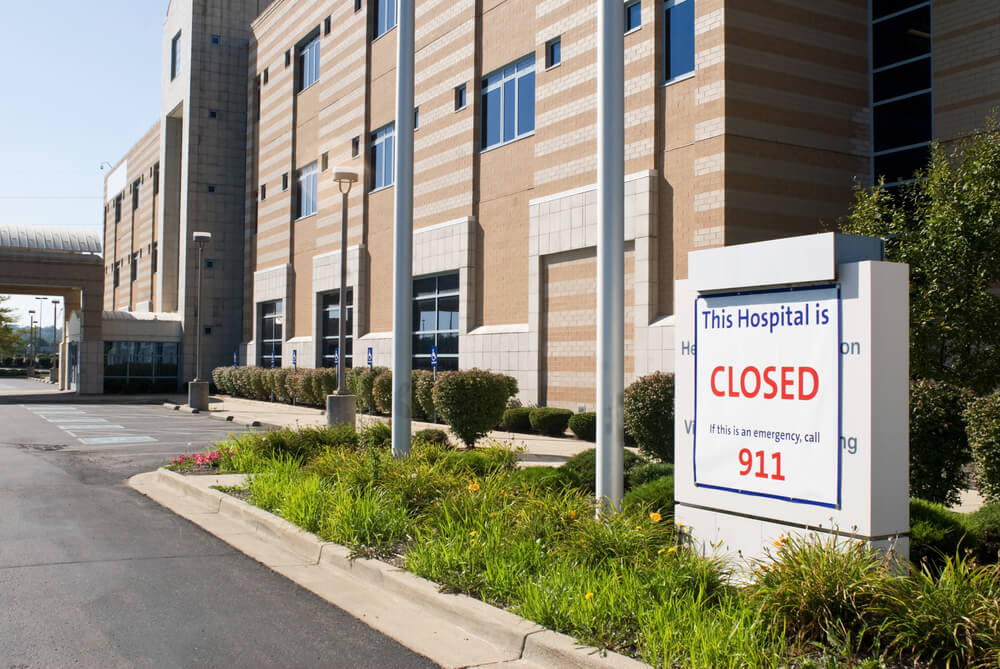



Get new exclusive access to healthcare business reports & breaking news




Chicago will lose one of its most iconic and longest lasting medical institutions in 2021. After 170 years of operation, Mercy Hospital & Medical Center will end its operations next January. Mercy was the first chartered hospital in Chicago and is a revered medical facility in the city. Its four hospitals serve the South Side of Chicago and some of the city’s most at-risk communities; many people depend on its services as their only local medical facility.
Many of mercy’s patients are elderly, use Medicare, and are not mobile. In some cases, not having Mercy as a local medical facility will cause them to travel some distance for medical care. Other area hospitals will use the rest of the year to begin taking over patients from Mercy. This will take quite a bit of coordination.
Unfortunately, the 292 bed hospital is finally succumbing to its inability to become profitable. Currently, Mercy Hospital has a monthly deficit of $4 million. The hospital has had this type of monthly debt for some time but has been able to avoid insolvency partially due to its importance to the community. But now the company has announced it will close its four hospitals between February 1 and May 31of 2021.
In 2012 Livonia, Michigan based Trinity Health purchased Mercy Hospital with an eye on modernizing it and moving toward profitability. The company has spent more than $230 million on upgrades and cash flow since that time. However, with the pace of medical advancements, the constant need for new equipment, and the complexity of getting money from Medicare and insurance companies, expenditures have outpaced income.
The group had developed a plan to create an independent health system for the Southside area of the city by working with Advocate Trinity Hospital, South Shore Hospital and St. Bernard Hospital. Collectively, the group was to be a powerhouse with the ability to serve the needs of this high-risk community by sharing resources and assets. The groups sought $1.1 billion in funding from the state for the venture. Ultimately, however, the funding was not approved, leaving Mercy Hospital and Medical Center unable to continue operating.
Management noted that at a minimum, Mercy Hospital would need more than $100 million dollars to continue without the planned partnership with the other Southside hospitals. This funding will not be forthcoming,
The deal highlights the often tenuous public-private relationships necessary in the healthcare industry. Much like the sports industry, the cost of building and maintaining facilities is often so expensive that institutions are dependent on the state for tax breaks, loopholes, and funding. There is typically pushback from communities and legislators who do not feel that the money requested is warranted. Some feel that if a business cannot support itself on its own, it simply should not be a business.
Hospitals can often find themselves in a very challenging position. They are open 24 hours a day and constantly serving patients, many of whom are critically ill and unable to pay. It is extraordinarily difficult for them to keep up with the latest technologies, upgrade their facilities, compete with pay offered to medical professionals by other medical facilities, and accommodate the impact of these costs on their bottom line. For this reason, they have too often found that their expenses far outweigh revenue. This certainly is the case with Chicago’s Mercy Hospital. The hospital group has been losing $4 million dollars a month for quite some time and finding it very difficult to sustain itself.
Mercy is not the only historic medical institution facing closure. Across the US, many of the oldest hospitals are having challenges turning a profit. As new advances like telemedicine lessen the need for these large and expensive facilities to operate, more of these older hospitals will be forced to close their doors.
Perhaps the only silver lining and only good news for this needy community, is that Mercy will open a smaller outpatient facility that can treat more than 50,000 patients each year. The center will provide urgent care, care coordination, and outpatient services. In a neighborhood where these types of critical medical services are sorely lacking, this facility will be welcomed.